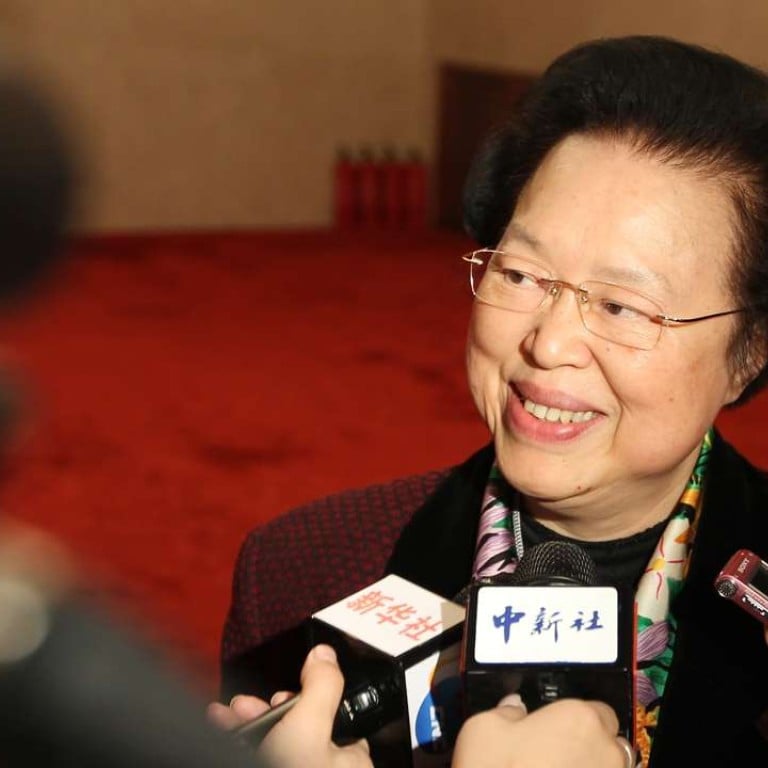
Beijing officials’ remarks on ‘insincere oaths’ not laws but a ‘persuasive explanation’, Maria Tam says
Basic Law Committee member says views could be taken into consideration by local courts in lawsuit to disqualify eight pro-democracy lawmakers
The suggestions made by Beijing officials that certain acts, wordings or props used during the Legislative Council swearing-in ceremony could amount to an “insincere oath” are not laws but a “persuasive explanation” that could be taken into account by local courts, a Basic Law Committee member said on Friday.
But none of the specifics from Zhang, Chen or Wang were included in the ruling handed down by the National People’s Congress Standing Committee, which on Monday stated only that lawmakers must be sincere and solemn in taking their oaths or face disqualification.
“[Zhang’s view] is just a guide but not law, and it is not legally binding,” Tam, a pro-Beijing heavyweight and barrister, told Commercial Radio on Friday morning.
But the “supplementary” details from Zhang were a persuasive explanation and very similar to the legislative intent of Article 104, Tam said, which could be considered by local courts in view of the latest legal challenge filed by veteran taxi driver Roger Cheng Yuk-kai against eight pro-democracy lawmakers.
Tam also reiterated that Beijing’s ruling would carry a retroactive effect as it was only interpreting an existing law instead introducing new laws – a point she said had already been affirmed by the Court of Final Appeal.
In the previous Legco term, then-Legco president Jasper Tsang Yok-sing had given lawmakers, such as “Long Hair” Leung Kwok-hung and Wong Yuk-man, a second chance when they messed up their first attempt.
But Tam said the fact that no one launched a legal challenge against Tsang’s ruling did not mean his judgment was correct.
She also claimed that the number of people who would be disqualified by the ruling was not at all the consideration of Beijing – which aimed only at keeping pro-independence forces out of the city’s establishment.
On the same programme, Albert Chen Hung-yee, another Basic Law Committee member and a legal academic at the University of Hong Kong, said it was reasonable for Beijing’s ruling to cover one’s right to stand for election as well.
Separately, Financial Secretary John Tsang Chun-wah said he believed Beijing’s interpretation would not affect the city’s rule of law and investors’ confidence in Hong Kong.

